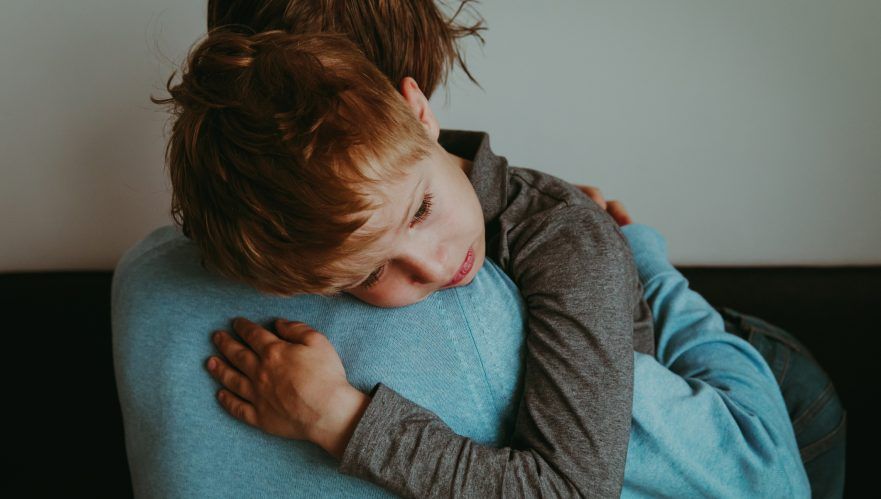Talking to Children About Death
2 minutes
Written by Laura Watts
Death is a topic from which we wish to shield children, to protect them from the scary reality of human mortality. But when the death of a loved one occurs, our children are among the bereaved. Parents and caregivers are faced with how to inform their children of the death and support them in their grief. Here are a few helpful guidelines to start these conversations:
When telling your child someone has died:
- First, allow yourself a moment to become calm and present.
- When you speak to your child, go to a quiet, familiar environment.
- When telling them about the death, use direct, concrete words like “died.”
- Give a clear, simple description of the physical aspects of the death, “Grandpa had a heart attack; his heart stopped beating, and when the heart is still the body can’t work anymore. He can’t talk, eat, play, or sleep. This can happen when the body is old and tired.”
- Explain that it is normal for all living things to die, and dead things do not become alive again.
- Reassure your child that they did not cause the death and are not in trouble.
- Be open to questions and be okay with saying, “I don’t know” or, “Let’s talk more about that later ” if you struggle to answer on the spot.
Your child may express their grief with:
- Regressive behavior
- Lack of appetite
- Trouble sleeping
- Clinginess
- Tantrums
- Physical aggression
- Looking/waiting for the person who died
- Difficulty at school
You can support your child in their grief by:
- Openly acknowledging and accepting their emotions.
- Providing productive ways for them to express their feelings: Channeling anger by hitting a soft bat against the wall.
- Collaborating in hands-on activities that honor the person who died. Draw a picture of them, bake their favorite cookie, wear their favorite color every Monday.
By actively remembering the person with your child, they evolve from someone your child interacted with to someone they still love but is not physically present. Such activities bring their presence back into the home in a new way.
Laura Watts is a National Certified Counselor through the National Board of Certified Counselors and a Certified Thanatologist through the Association for Death Education and Counseling. She holds masters degrees in counseling and thanatology. Laura has helped people process their grief in meaningful and productive ways via grief groups, individual counseling, and consultation. She is the author of The Week I Tore Up My Book: Recognizing Grief Expression in Young Children, available at sprucestreetbooks.com
The Mother Company aims to support parents and their children, providing thought-provoking web content and products based in social and emotional learning for children ages 3-6. Check out our Emmy winning children’s series, “Ruby’s Studio” along with our beautiful children’s books, music, and more. We want to be a truly helpful parenting tool… For you!
Posted in: Emotions